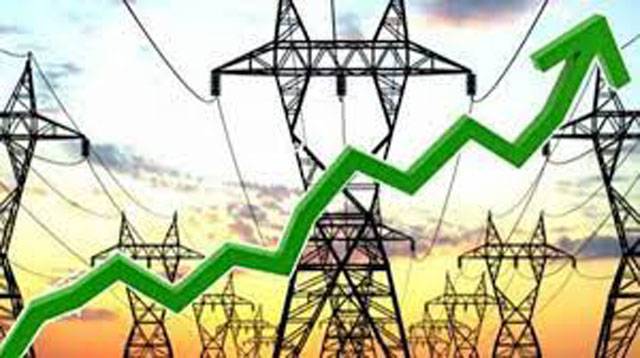ISLAMABAD-Various stakeholders Monday came down hard on federal government and National Electric Power Regulatory Authority (NEPRA) on their move for a hefty hike of up to Rs7.50 per unit in base power tariff.
In a public hearing conducted by NEPRA, on the federal government’s motion for increase in base tariff, the intervenors have blamed the government and NEPRA for ignoring the interest of the electricity consumers. The hearing was presided over by Chairman NEPRA, Tauseef.H.Farooqui.
It is worth to mention here that last week, the federal cabinet had approved a hike of up to Rs 7.50/unit in power base tariff for various categories of consumers. Following the cabinet approval, the federal government had sought the NEPRA approval for the adjustment of subsidy to various categories of consumers, which will become part of average base tariff increase of Rs4.96/unit. NEPRA had allowed the federal government to authorise increase of Rs 4.96/unit (or 20pc) in base electricity tariff, taking the national average electricity rate to Rs 29.78/unit.
Various stakeholders criticized both power regulator and the government for massive increase in base tariff and implementing cross subsidy without going into due diligence regarding impact on export oriented sectors.
The interveners also criticized the regulator and the government for allowing installing Independent Power Plants (IPPs) for enhancing the generation capacity to 45000MW without investing in transmission and distribution network.
The interveners were of the view that the maximum generation is 26000MW, however the consumers had been paying capacity payments for idle power plants.
Official of the Power Division while briefing the regulator said that that the main reasons for the proposed increase in base tariff are the depreciation of Pakistan rupee and capacity payments.
NEPRA official was of the opinion that it is the government’s responsibility to determine how much increase will be applied to each slab, making it purely a political and administrative decision.
Rafiq Shaikh, Member NEPRA Sindh, questioned about the law that empowers the government to provide subsidies and asked for clarity on how the amount of subsidy for each slab is being determined?
While responding to Rafiq Shaikh query, official of the Power Division responded that the government would give a subsidy of Rs 158 billion to electricity consumers. Similarly, there would no increase in tariff for consumers using up to 200 units.
“40 percent of consumers in the country are living below the poverty line, and the government provides subsidies to these electricity consumers, covering 90 percent of the total consumers,” official of the Power Division added.
Rafiq Shaikh emphasized the need for the Power Division to present an economic case for subsidy allocation to electricity consumers. He raised concerns that subsidizing domestic consumers could adversely affect the industrial sector.
The representative of All Pakistan Textile Mills Association (APTMA) Tahir Basharat Cheema expressed concerns over the base tariff hike and claimed that even one percent increase in the tariff adversely affects exports.
He said that if they were to switch to alternatives from the national grid, they would have to pay Rs300 /unit. He also mentioned that electricity companies resort to loadshedding when their losses are higher or recoveries are low. APTMA representative also pointed toward the incidents of burning of 22000 electricity meters during recent rains and questioned that how such incidents occurred.
Amir Jamat-i-Islami Karachi, Hafiz Naeem ur Rehman rejected the base tariff hike and accused NEPRA of toeing the line of the government.
The proposed hike would burden the urban population and regular electricity bill payers, he argued. Public is bearing the brunt of the government’s inefficiency, Naeem ur Rehman added.
He also came down hard on the regulator for not taking decisive action against Independent Power Producers (IPPs) despite their agreements being detrimental to the country’s economy and people.
Amir JI further accused NEPRA of acting under the instructions of the cabinet, making the hearing seem futile and merely an attempt to save face.
He argued that the subsidy itself represents inefficiency in the government’s management of power plants and distribution companies, leading to hardships for the public.
The chairman of the National Electric Power Regulatory Authority (NEPRA) voiced disappointment at Naeem’s refusal to accept past invitations for collaboration.
The industrialists from Karachi also rejected proposed increase in electricity rates and said that Karachi was contributing 42 percent in revenue but electricity rates for industries were being increased that would hit the industrial sector. NEPRA has reserved its decision regarding hike in base tariff.
Sunday, May 19, 2024
Consumers lash out at govt over massive power tariff hike in public hearing

Sports & Genocide
May 18, 2024
Healing AJK
May 18, 2024
A New World Order
May 18, 2024
Tobacco Toll
May 17, 2024
Rushed Reforms
May 17, 2024
Continuing Narrative of Nakba
May 18, 2024
Teacher Struggles
May 18, 2024
No Filers out of Reach
May 18, 2024
Hoax of Inflation Coming Down
May 17, 2024
Rising Inflation
May 17, 2024
ePaper - Nawaiwaqt
Advertisement
Nawaiwaqt Group | Copyright © 2024





